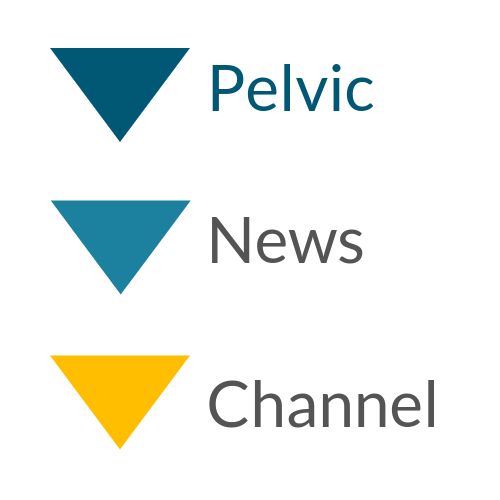One of the objectives of Pelvic News Channel is to connect. To connect colleagues from all over the world and to learn from each other. How pelvic physiotherapy works around the world.
This is the transcript of my interview with Heather Moky, who is a good friend and colleague of mine from the USA.
Who is Heather Moky:
I am Heather Moky a pelvic health physiotherapist from Chicago, Illinois, USA. I have been a pelvic health physiotherapist for close to 20 years now. It is a real joy and passion of mine. I work at the University of Illinois at the hospital there and I am faculty for the University, and where I run a pelvic health program. We have 3 fulltime and on part-time physical therapists who treat men, women and children and the program continues to grow. And it would grow even more if we had more space but that is a challenge if you work through a hospital system.
How did you become interested to become a pelvic health therapist?
Part of it is how I became interested in physical therapy and that is a direct link. My grandfather had a health problem and he became paralyzed from his thoracic spine down. So he was confined to a wheelchair and I didn’t understand why my grandfather could not go to the park with me. So I would do exercises with him to help him get stronger so he could take me to the park. I didn’t realize that it had a big impact on me as a child and wanting to help people to rehabilitate so as I got older I definitely knew that I wanted to get into either medicine or physical therapy. Become a doctor or a physical therapist. So I spend time volunteering in each scenario. So I like physical therapy. As I got older I was always wanting to promote women and women’s issues. I worked and volunteered with education on rape awareness and domestic violence and helping women in those scenarios. That generally led me to wanting to work with women and women’s issues. Then you get into pelvic floor and that opens wide up and see how much work is needed there. And that is where I found my calling.
How did you become a pelvic physiotherapist? Do you need to follow specific courses?
Well in the US there have been a lot of changes in becoming a physiotherapist. There are some people who were able to get a bachelor’s degree, some have a master’s degree. Now throughout the United States you have to get a doctorate degree. But first you have 4 years at a university and then continue on a program to become a doctor of physical therapy. Which I know can be confusing because that is our entry level and in other countries in the world a doctor of physical therapy that is more of an advanced degree. But ultimately to become a physical therapist you have to have 7 years of university work that you must conclude. Than you have to take a state licensure. I live in Illinois, you have to take a test and pass that. From there you can start your pelvic health education. Which is through a lot of continue education courses. You can do a series of 2 to 4 days and study.
Are there different courses or is there one course you have to have?
In the United States you have different options. Primarily there a two major educational institutes where you can do your pelvic health education. One is through the APTA. The American Physical Therapy Association and the other is through Herman and Wallace. They offer different series of courses. Where after you can sit and receive a certificate of pelvic education and achievement so you can be considered CAP certified. There is another certification as well and it is interesting because that has been developed over the past 10 years so there are a lot of people in the field who don’t have these certifications but they also have 20, 30, 40 years’ experience. So that speaks more volumes than getting that CAP certification at that point.
I see a lot of female pelvic physiotherapists here, do you have male pelvic physiotherapists as well. Yes, definitely we have male pelvic health physical therapy. But they are definitely in a very minority. There are very few. As it can be a challenging environment to go through. But there definitely are some, I have worked with some and they are absolutely fabulous and I think that as we will continue to see the field opening up we will see more and more men going into these roles. Especially post prostatectomy and other male areas as well. But definitely there are males out there who treat females as well.
Just for my idea, when I think about America, I think about the legal issues and the internal investigation, in which the patient is quite vulnerable. How do you deal with those?
Yes, unfortunately, there are many good things about America as well. So come and visit me and I will show you, but yes, to protect yourself the business where you work will have an insurance policy that will cover you in case someone would sues you. In addition you can have a private insurance additional to the one from work. That will cost you between 300 and 500 dollar extra per year. This is an extra protection. Not everybody has it though because you can get covered through your work.
Do you have any special area of interest?
It is hard to focus on just one because I think pelvic health is so interesting and becoming more and more dynamic. But I see a lot of rise in recognizing the need helping cancer patients the post treatment of cancer patients in the hospital. That is one of our initiatives right now just like transgender patients and giving them support before, during and after their transition. So I think it is an exciting time to be a pelvic health physical therapist. There is you know so much more than just treating incontinence. But that is also so important too because that can have life changing effect for patients too. It is just need to see how many diagnoses we can treat and really help change people’s lives.
Well today we are at the ICS conference in Gothenburg and I have heard that you have just become the chair of the physiotherapy committee. Can you share some insight knowledge with us?
It is an honour and a privilege to step into this role. It is a learning opportunity, like I just said there is so many things that pelvic health physical therapists do and I think that there are so many ways that we can showcase the different specialties we have. Not only in the diagnoses we treat but also in how many different treatment options we have and do things all over the world. And just coming together here and build better bridges and come up with better treatment options and reach people who do not have these treatment options. So you know I have a lot of thoughts and once I get a little more stepping into this position. I will hopefully get more and more goals to attain but I will be working with a lot of wonderful people who will help me. There is no I, this is a group effort. We are very lucky; we have a great committee with wonderful people and have wonderful passion.
I am already looking forward to Las Vegas next year and see what you come up with. Just one more thing that comes into my mind. You live in Illinois so if would move to Florida, would you be able to work as a physiotherapist?
I should be able to but you have to in the United States have each states law. Sometimes you can apply for a transfer to a different state but sometimes you would have to retake your licensure test to become licensed in that state. I have even known people who had to take extra courses before they had their licensure. So depending on the state it depends on what you have to do. And offhand I didn’t look it up because I didn’t know you would ask me this. So it depends on the state and their rules.
Is there a book you would like to recommend to our colleagues?
There are so many wonderful books I can recommend and there is more information coming out every day about pelvic health and the treatment options. But my favourite one is just going back to a good anatomy book. Mine is the Frank Netter, anatomy book. I bring it out to patients we will discuss things with colleagues and it is just a reminder that we never know enough about anatomy. We always have to double check what we are thinking the pictures are amazing and I have learned so much from them.









Recent Comments